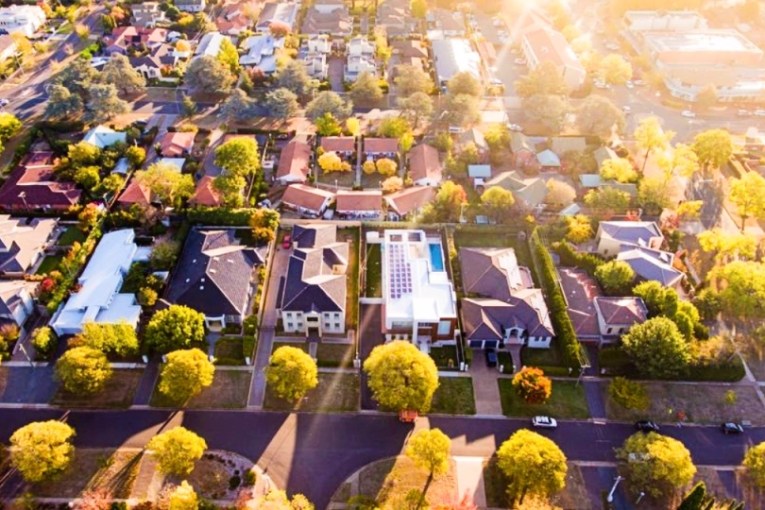The PM’s housing scare campaign

In the real world there is no such thing as a pure ‘economy’.
It is always a ‘political economy’ – a point highlighted today by Prime Minister Malcolm Turnbull’s plan to call a double-dissolution election to pass a “critical economic reform”.
Be in no doubt – the two economic issues he discussed in the media conference are extremely important, but his approach to them is heavily political.
• PM flags early double dissolution poll
• Double dissolution elections explained
First, there is the issue that Turnbull named as “critical”. That comes in the form of two bills, rejected last August by the Senate, that the Coalition argues will clean up “lawlessness” in the construction industry, improve that sector’s productivity, and lower the cost of the “infrastructure of the 21st century”.
The second issue, which Turnbull spoke at length about before announcing his move towards a double dissolution, is Labor’s plans to restrict the use of negative gearing in the property market, and halve the discount applied to capital gains tax.

Mr Turnbull has revealed his preferred election plan. Photo: AAP
The politics of the situation means that the government will claim the election is all about the first issue, but will run its election campaign focusing heavily on the second.
That’s a key point for voters, because on the second issue the government has already been exposed by numerous eminent economists as having its facts wrong.
Australia is at a crossroads, as the economy transitions away from a mining investment boom and towards other export industries, particularly in services areas such as tourism and education.
But during that transition, a second inflection point has been reached – a 20 year boom in debt-driven property speculation is reaching its limit and endangering the whole economy.
Labor’s plans on negative gearing and capital gains tax reform are calculated to deflate that bubble-economy slowly and restore housing affordability over time.
And as economists of the caliber of Saul Eslake and the Grattan Institute’s John Daley have pointed out in past weeks, those changes will not ‘smash’ house prices as the Coalition keeps claiming.
Meanwhile, it’s true that reform is needed in the construction sector to bring costs down for the huge amount of infrastructure that needs building. We have been falling behind in that sector for years now.

Reputable economists have told the government it’s wrong about negative gearing.
Labor is offering its own, milder version of construction sector reforms, but they fall well short of the Coalition’s double-dissolution trigger bills – one which would resurrect the Australian Building and Construction Commission, and the other ‘Registered Organisations Bill’ which would impose strict rules on union activities.
Politics is central to all this for a simple reason: Australian voters have come to believe that rising house prices, driven by record levels of debt, are always good for the economy. And every home-owner knows roughly what their dwelling is worth.
By contrast, the ins and outs of the union movement and construction industry, or even the need to play catch-up on infrastructure spending, are much more abstract issues for many people.
So the Turnbull government will now campaign heavily on the economic issue that eminent economists say it has plain wrong.
It will be an election in which one side tries to scare Australians with a ‘sky is falling’ argument on house prices that just does not stand any serious scrutiny.
Yes, that’s politics. But it is a very dangerous time to be playing such a game with the economy.







